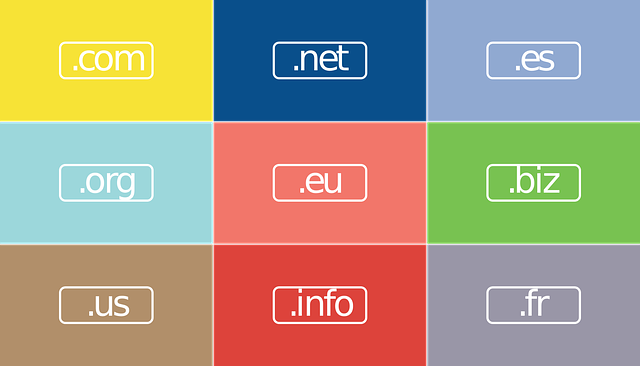The Dilemma of Multiple Domains
When it comes to protecting your brand, often businesses have no idea how far to go. Yes, online reputation matters, and it is important to keep your name yours. However, this often leads to businesses buying and even maintaining multiple domains and even blogs. Alternatively, they will buy several domains, and redirect all of them to their main .com site. What are the pros and cons of this practice?
Cost
When you order your website domain name, it will cost you between $12 and $15 a year in most cases. Of course, if you order more than one domain name, you will pay that cost for each.
While this may seem small at first, you can go from a single domain with minimal cost to an annual cost well over $100, and for sites you are merely going to redirect, not actually use. Here are some options you will probably be offered, and the pros and cons of each.
Country Extensions
Does your business need a .co.uk extension? How much do you market and sell in the UK? If the answer is a lot, then yes, you may need a country extension for the territories you operate in.
However, for the most part this is unnecessary unless there are companies in other countries with a similar or even the same business name as yours. In that case, they could outrank you on search engines and steal traffic (and perhaps customers) from you.
The reason you may need additional country domain names is if you need websites in different languages. If you do a lot of selling in Portugal or Brazil, for example, you will need sites in the local language. These sites should also be constructed differently. If possible, hire a local designer or someone familiar with sites from that country. In this case, a country domain extension makes sense
Name Variations
Another website option is always to purchase close variations of your domain name, in part so no one else takes that name and steals traffic from your site. This can be a legitimate problem, but needs to be evaluated for the cost vs. the benefit.
Is someone else going to use your same brand name, and how will they actually steal traffic from you? Will they be able to do so? An easy example is the Wallace, Idaho Chamber of Commerce. The small tourist town owns the domain name wallaceid.com. Another local individual purchased the variation wallace-id.com.
The sites do not look at all similar, but the secondary site does take some traffic from the main site, yet has not really been disputed. This is in part because it contains some of the same information as the main site, just in a different format, so it still benefits the town.
True, the Chamber could have purchased that secondary name to protect their brand, but what is the real cost, and what difference would it make? These are the same things you should consider in the case of your site.
The expense from owning other domains could be better spend on SEO optimization and other web practices to prevent other sites from ranking over yours rather than purchasing more domains.
Maintaining Multiple Sites
Many brands have a dream of having more than one site to rank in different categories with each, or to have more than one site ranking in their niche.
First of all, this is not the best way to beat the competition. It doesn’t always work, especially if your sites are competing against each other in the same or similar SERPS. In this case, one page usually gets most of the attention, or neither one does as well as you would like due to lack of focus.
Another common mistake is to place duplicate content on each. That is bad news for search engines, and can even result in your site being penalized and your rankings dropping even further.
Taking on a second site means twice the SEO work, creating twice the content, and doubling your efforts in a number of ways. This also doubles your costs in these areas.
The other issue with this tactic is that it does not work with brick and mortar businesses especially. More often than not, it just results in confusion from customers.
Traffic
Perhaps the most important question is to ask is how much traffic each site you are adding to your list. If the sites are not getting, and redirecting traffic to your site form them, than owning them is counterproductive.
In the rare cases where you are getting good traffic from these sites, then owning them is certainly worthwhile.
The Bottom Line
Owning multiple domains may seem like a good idea and even a winning strategy, but there are nearly as many arguments against owning them as there are for them.
The legitimate reasons to own more than one domain are few:
- Foreign Languages
- Traffic from other countries
- Legitimate brand protection
Keep in mind the extra cost in both time and money that each domain requires, and weigh your choices accordingly to determine if owning multiple domains is the right answer for you.

